Elusive dream of equitable care

The startling reports on the burgeoning cancer incidences in India underline the dismal lack of infrastructure to meet the rising demand for cancer care. While the small number of dedicated cancer care centres seems unable to deal with the cancer burden in future and equitable cancer care appears difficult to attain, some institutes continue to indefatigably work towards standardised cancer care in the country
By Aatika H Jain
Around 83 percent of cancer patients in India are not getting the right treatment, claims a recent study by an online cancer care portal. The study states that more than 15 percent of patients were receiving totally wrong cancer treatment while 27 percent were not being administered the right chemotherapy medicines and 41 percent did not go through the required complete set of tests. Even in this minuscule sampling of 300-odd patients, this left merely 17 percent of the total cancer patients undergoing correct treatment protocol according to the international, scientific guidelines.
The Cancer Crisis
- According to WHO, India accounted for 8.17% of global cancer deaths in 2018
- Number of cancer cases to increase 5 times by 2025
- 17.3 lakh cancer cases predicted by 2020, leading to 8.8 lakh deaths
- Only 12.5% expected to get early-stage treatment
- Only 62 dedicated national cancer care centers in the country
While a study like this may not translate to alarming reality in terms of a country like India where thousands of cancer patients are treated daily, it is still a cause for concern; mainly because it highlights the need for standardization and a better cancer care infrastructure. In developing countries, a large number of cancer patients do not have easy access to experts and fail to get the requisite multi-disciplinary opinions and care, which is crucial to successful cancer treatment. Consequently, they do not get the best possible treatment procedures and end up taking whatever treatment options are available to them, leading to poor outcomes. This is one of the major factors for the high rate of cancer deaths in the country.
The standard treatment protocols for cancer are continuously changing and developing for better outcomes with the advent of new technologies, therapies and breakthrough research. But they are not accessible to the masses due to lack of an adequate number of specialists and hospitals in the country in proportion to the increasing number of cancer cases.
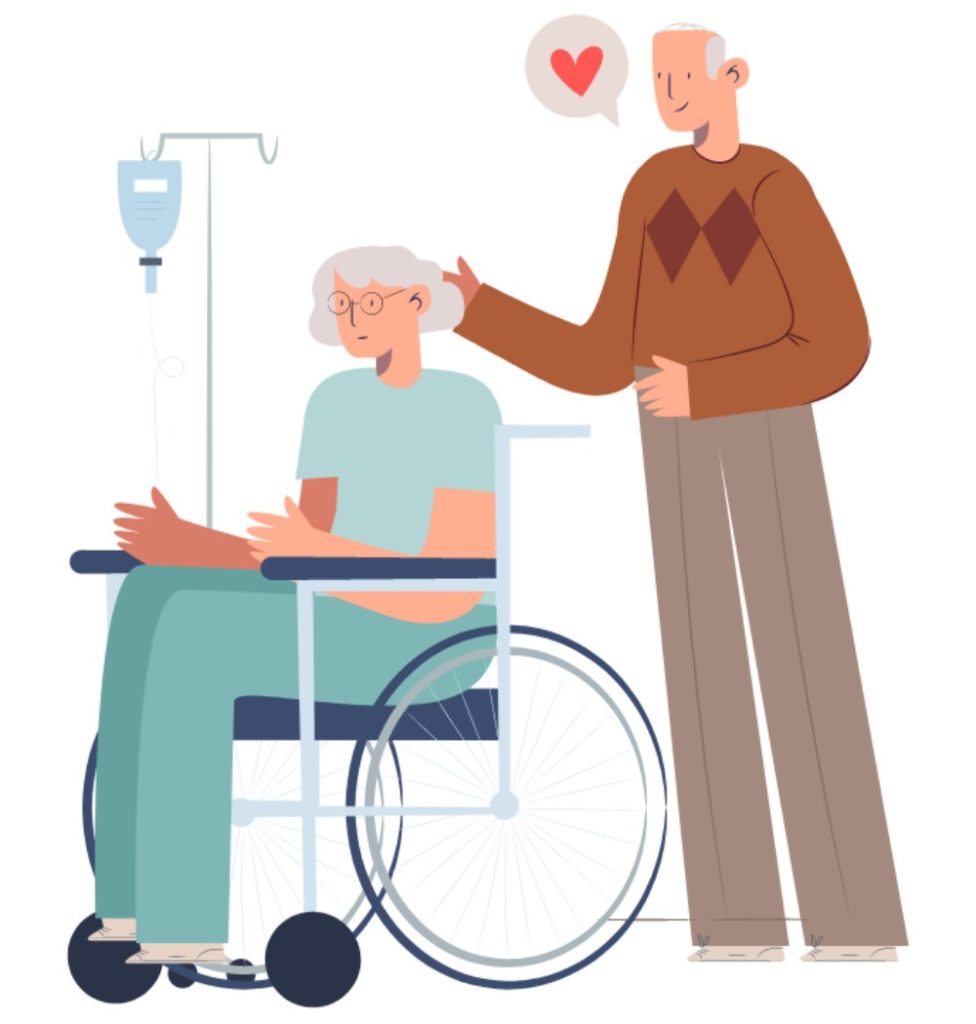
Road to a uniform standard of care
The recent report alleging a high percentage of cancer patients in the country getting wrong treatment is alarming but the fact of the matter is that cancer care has improved tremendously in the country in the past few decades. “In our country, the cure rate of most cancers practically has become 30-40 percent better. We used to get more of stage three/four cancer cases 40-45 years back. We get more of stage one or two now because of increased awareness. Prevention has become better. The treatment has become better and we are getting early-stage cases. Earlier the stage, better the cure,” says Dr. G K Rath, radiation oncologist, and chief, Dr. B R A Institute-Rotary Cancer Hospital, the All India Institute of Medical Sciences, and the head of the newly launched National Cancer Institute, Jhajjar, Haryana. “Soon we will have the latest machine in the field used in proton beam therapy, which is extremely accurate,” he says.
The cutting-edge technology has vastly improved cancer outcomes. In fact, cancer care offered in India is one of the best. The problem lies in the unequal distribution of already insufficient healthcare services and their inaccessibility to a large number of cancer patients. This leads to the great disparity in cancer incidences and deaths in various regions of India. “If you check the figures, you will see that we are getting close to 100 medical oncologists trained every year, with DM,” says Dr. Shailesh Bondarde. “In the next 10 years, the problem of not having enough oncologists will be easily solved. Another problem is that as of now, there are many patients who are not receiving treatment from the oncologists, as they cannot travel from the village to the city. With more and more oncologists settling down in Tier 2 cities, this scenario should be improving soon.” The standards for the diagnosis of cancer and its treatment.
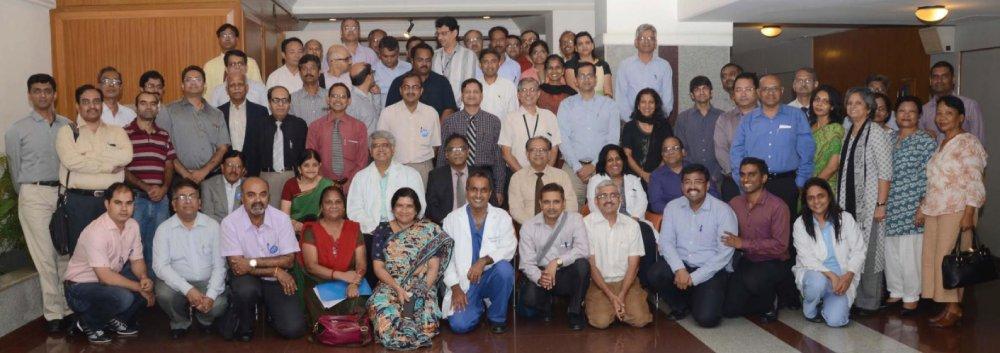
protocols significantly differ among cancer centers and different geographical regions throughout India. Uniform criteria for early detection/diagnosis, treatment, and patient follow-up is missing mainly because not all cancer care providers in the country are connected through a common network which could have made it possible to enforce common standard cancer management guidelines. One of the urgent needs of the hour, to control the country’s escalating cancer burden, is to make available high-quality uniform cancer care across the nation. Ensuring easy access to standardized best cancer care all over the country would tremendously improve cancer outcomes for patients who will no longer have to travel great distances for the best possible treatment. “To ensure standard cancer care across the country, two things are a must. Trained doctors in oncology in all the three specialties such as medical, radiation and surgical oncology and the other is a good infrastructure and technology such as radiotherapy machine and IT,” says Dr. Randeep Singh, senior consultant, and unit head, medical oncology, Artemis Hospital, Gurugram.
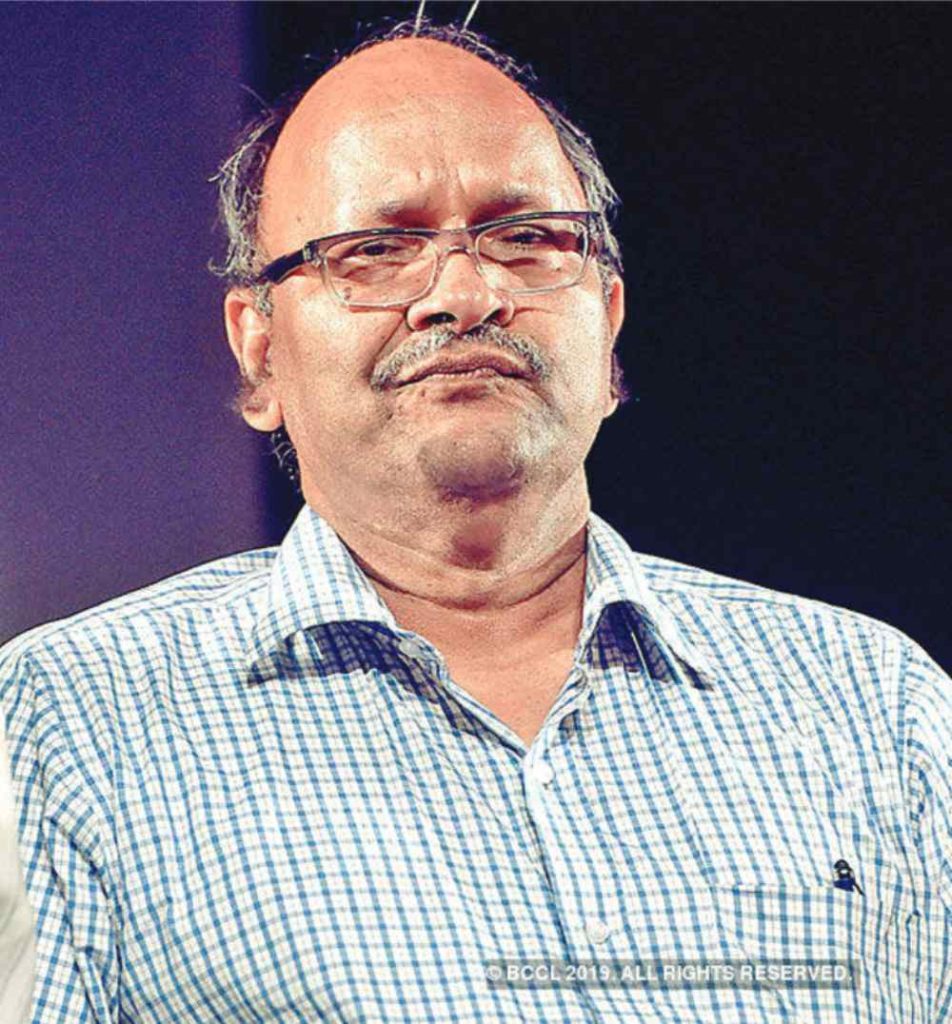
“IN OUR COUNTRY, THE CURE RATE OF MOST CANCERS HAS PRACTICALLY BECOME 30-40 percent BETTER. WE USED TO GET MORE OF STAGE THREE/FOUR CANCER CASES 40-45 YEARS BACK. WE GET MORE OF STAGE ONE OR TWO NOW. PREVENTION AND AWARENESS have BECOME BETTER.”
Dr G K Rath – Head of National Cancer Institute, Jhajjar, Haryana
National Cancer
The National Cancer Grid (NCG) was established in 2012 by the Tata Memorial Centre (TMC) with the mandate to connect cancer centers of the country and create uniform standards of healthcare across these centers to decrease the inequality in cancer treatment based on geographic location and socioeconomic position. It is funded by the Centre’s Department of Atomic Energy. From a small beginning of only 14 centers in 2012, it has grown to a network of 172 including major cancer centers, research institutes, patient groups, and charitable institutions in India. “The main mandate of this grid was to standardize cancer care across India and we also felt that this would be a ready platform where we could exchange knowledge and training opportunities as well as be a platform for collaborative multi-centric research in cancer. So these are the three pillars on which the cancer grid stands now,” says Dr. C S Pramesh, coordinator, NCG.

Some of the steps planned to implement this comprises forming and enforcing uniform evidence-based guidelines for the management of common cancers, consistent cancer education, sharing of expertise, experience, and data among the centers, and institutional peer review. Regular peer review, identifying gaps and corrective measures will produce continuous improvement of infrastructure and treatment procedures or protocols. The first peer review carried out under the NCG was at Cachar Cancer Centre, Silchar, in November 2014. “We offer institutional peer review to any center which volunteers. Initially, there was a lot of reluctance to get centers peer-reviewed because people felt that this would be a blame game but some of the smaller centers paradoxically were the first to put their hands up to be peer-reviewed. And the feedback from them has been extremely positive,” says Dr. Pramesh. “So many of these centers have actually been able to implement the recommendations of the peer review within six months of the review and at a very minimal cost. That was one of the fears of going through a peer review—that the expense of following the recommendations would be expensive. This is now becoming an ongoing activity.

Many more centers are now volunteering to be a part of this review process.” NCG aims not only to standardize cancer care in India but also to provide specialized cancer education and training, and to help in collaborative basic, translational and clinical cancer research. “The north-east part of India is very challenging. Their ability to attend conferences and workshops is limited. So we actually started what we call the Travelling School of Pathology. Experts in pathology, surgical pathology and surgeons actually travel across several cities in the north-east and this is quite a cities over a period of 11 days, actually taking state-of-the-art pathology grossing and reporting right to the doorsteps of these pathologists, thereby obviating the need for them to travel to major cities for continuing medical education. It has got a very positive response from the pathologists in the north-east.” NCG, in collaboration with TMC, Mumbai, regularly organizes CReDO (Collaboration for Research and Development in Oncology) workshops for training cancer researchers.
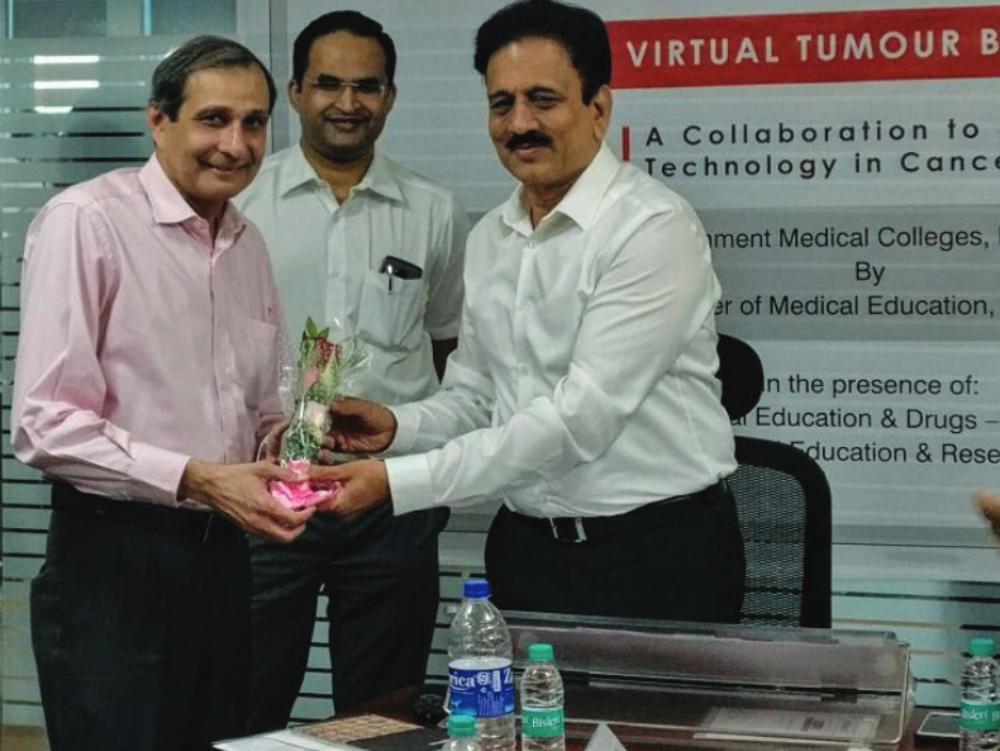
In 2017, Tata Trusts and TMC collaborated with NCG experts to develop the Navya expert opinion service. It offers patients diagnosed with cancer expert opinions and treatment procedure options from the world’s leading specialists, regardless of their geographical location or medical knowledge. Navya is a major informatics and patient service organization helping patients, caregivers, and doctors with expert oncology treatment decisions. Specialists from NCG and TMC, in conjunction with the Navya system, offer their expert opinions to patients all over India and in more than 20 developing countries across Asia and Africa. Navya clinical informatics connects cancer patients to appropriate clinical trials that may be good for them. It also provides information about several treatment options that have been successful in similar cases using its archived medical record systems. “Patients at small or remote centers now have access to the world-class expertise of cancer experts in India,” states Dr Pramesh.
“Treating oncologists at non-expert centres can consult with experts online in a simulated tumour board that results in expert treatment decisions for patients everywhere. Treating oncologists or oncologists in training can learn to make expert-grade treatment decisions by using the Navya system and learning from the treatment decisions made by experts for their patients.”
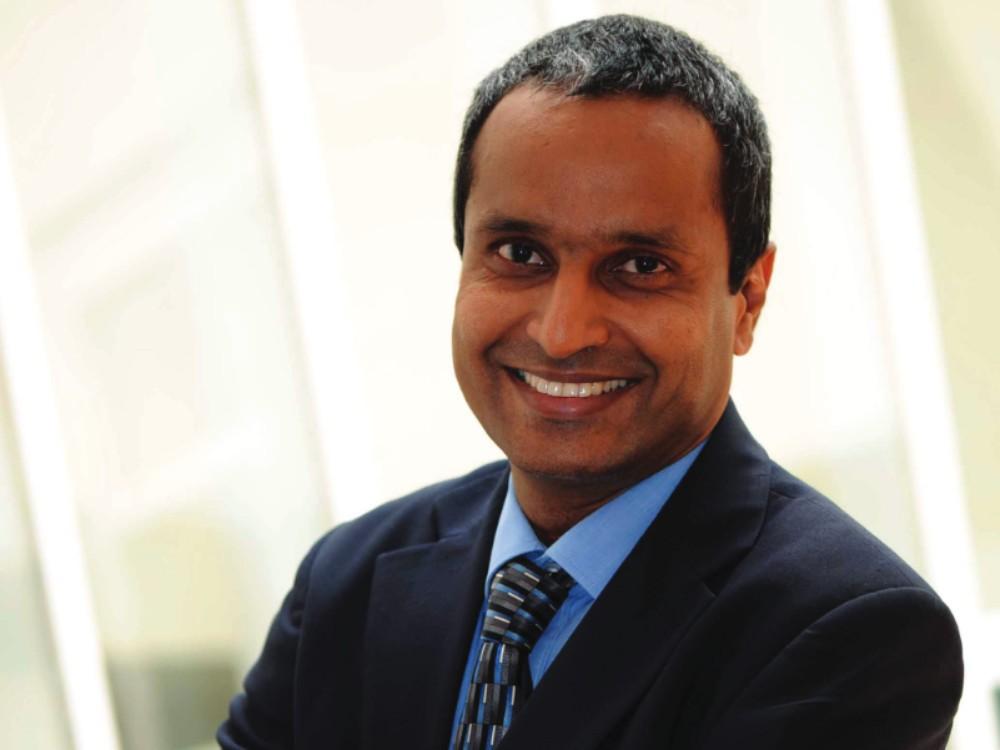
“THE MANDATE OF THIS GRID WAS TO STANDARDISE CANCER CARE ACROSS INDIA AND WE ALSO FELT THAT THIS WOULD BE A READY PLATFORM WHERE WE COULD EXCHANGE KNOWLEDGE AND TRAINING OPPORTUNITIES AS WELL AS BE A PLATFORM FOR COLLABORATIVE MULTI-CENTRIC RESEARCH IN CANCER. SO THESE ARE THE THREE PILLARS ON WHICH THE CANCER GRID STANDS NOW.”
Dr C S Pramesh – Coordinator, National Cancer Grid
Virtual Tumour Board
Tata Memorial Hospital (TMH) and Tata Trusts introduced Tata Virtual Tumour Board ECHO (VTB) in December 2016 and formally inaugurated it in January 2017 during the 75th platinum jubilee celebrations of TMH. The programme aspires to connect the 146 member hospitals of NCG utilizing the ECHO platform for expert knowledge sharing. Complicated cases of cancer patients frequently lead to differing opinions amongst specialists regarding the treatment procedures as in surgery, chemotherapy, radiotherapy or a combination of them. Such cases cannot be treated by the doctors without consultation with experts of different specialties. VTB helps in providing collective expertise from a team of specialists instead of a single one to patients with complex cancers. “The virtual tumor board in the future to bring all professionals together to discuss a case especially when they are sitting at different cancer centers of excellence across a big country like India,” says Dr. Singh.
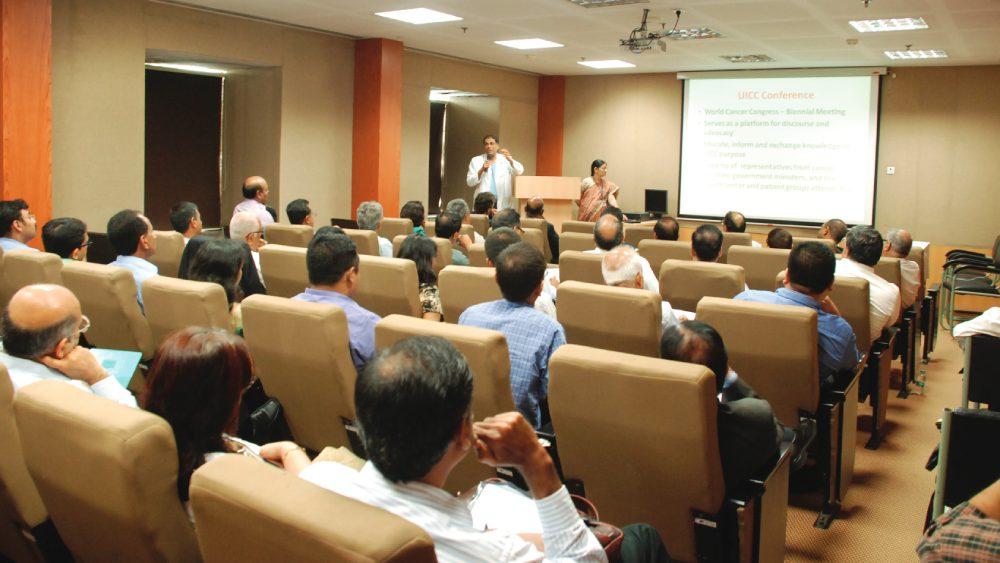
Over 100 participants from 17 hospitals across India took part in the first session of VTB. The weekly VTB sessions provide ‘collective intelligence’ of the participating cancer centers for diagnosis and treatment of existing complex cancer cases and cover diverse specialties such as head and neck, bone and soft tissue, urology, thoracic, pediatric, hematolymphoid and adult hematolymphoid. The TMH experts act as facilitators to these clinics with over 30 centers as participants. VTB consists of cancer specialists, surgeons, and paraprofessionals from leading government / private hospitals and cancer institutes who hold online discussions at scheduled hours. During a typical VTB session, the member cancer care centers share patient’s case details and the available participating experts offer their opinions.
“The VTB provides the hospitals free expert opinions from leading cancer specialists, including Tata Memorial Hospital experts, to plan treatment of cancer patients in an effective and timely manner,” says Dr. Pramesh. “It acts in two ways. One, it actually provides an opinion about an individual patient for complex cases. And secondly, by just sheer participation in several of these virtual tumor boards, it’s a learning process for the professionals who participate. So, it fulfills both criteria: patient care as well as educational training.” VTB might soon provide experts’ advice to Pradhan Mantri Jan Arogya Yojana (PMJAY) beneficiaries, irrespective of their location, as the National Health Authority gears up to partner with NCG.
Virtual Tumour Boards
- Tata Virtual Tumour Board ECHO launched in 2017
- To tie-up with Pradhan Mantri Jan Aarogya Yojana, in partnership with NCG

According to experts, 25 percent of cancer cases diagnosed every year amount to ‘complex cases’, with no clearcut treatment. The agreement with NCG, once implemented, would make available multi-disciplinary cancer teams in many healthcare centers. It will improve the accessibility for patients and also help set up standard protocols for the treatment of all kinds of cancer. More than 30 percent of the total tertiary cases receiving treatment under the PMJAY scheme are cancer cases. The government has allotted INR 400 crore to cancer care under this scheme but the number of cancer hospitals in this scheme’s network is small; many hospitals still choose to remain unlinked with the scheme. This makes the portability difficult for scheme cancer beneficiaries and they find it hard to access quality cancer care. More than 1,500 hospitals with cancer care services are presently enlisted in the scheme. However, only 438 of them offer multiple treatment modalities such as radiotherapy and chemotherapy; 76 percent of the enlisted cancer hospitals are in Uttar Pradesh, Gujarat, Chhattisgarh, Karnataka, and Tamil Nadu. These five states receive cancer beneficiaries from all over the country.
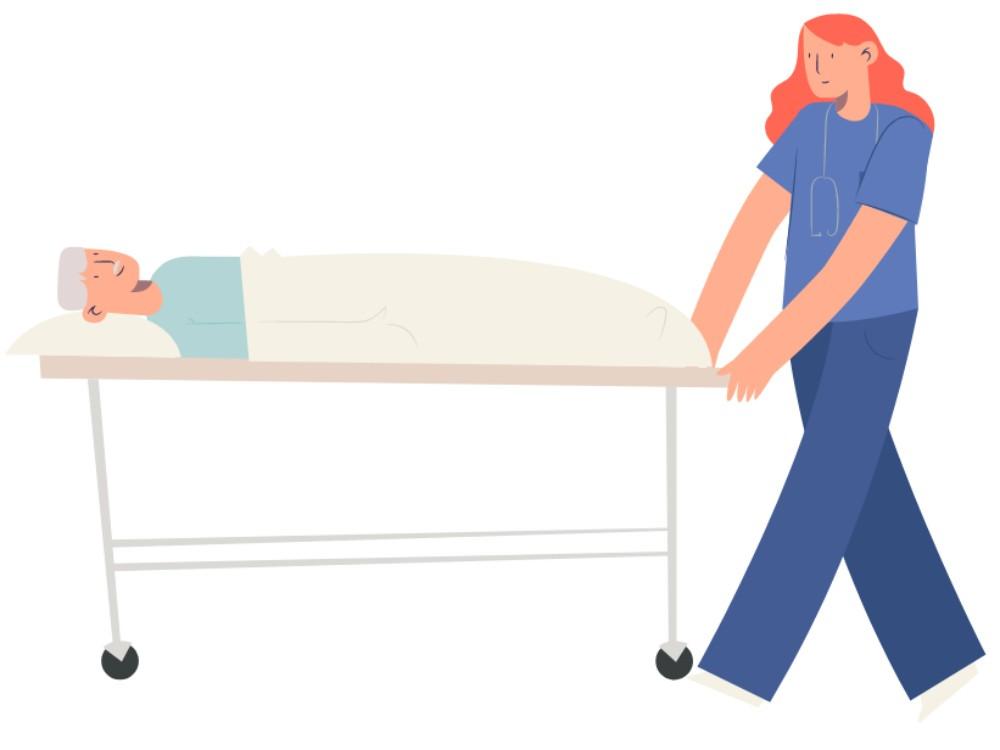
With the exponentially increasing cancer incidence in the country, the need for cancer care is also rising at the same rate. There is an urgent need to boost infrastructure to meet the mounting demand for cancer care. Collaborating with NCG will make certain that patients throughout the country receive the best possible treatment protocols, as evaluated by the VTB. NCG has amongst its members the country’s leading cancer care centers, research, and educational institutes, which makes it capable of identifying the cancer burden of India in realtime and formulating strategies to tackle it. One of the most challenging long-term goals of NCG is to come up with a national cancer policy which would help in bringing down the current mortality: incidence ratio to match that of higher Human Development Index countries. NCG would have achieved its goal when the overall cancer outcomes in India improve greatly while high-quality standardized cancer care becomes accessible to everyone.
National Cancer Control Programme of India
The National Cancer Control Programme (NCCP) of India has launched almost 50 years ago, in 1975. The main objectives of the programme include primary prevention through healthcare education, secondary prevention through early detection and diagnosis, improving/expanding the existing cancer care facilities and ensuring palliative care in the terminal stages of cancer. Right now, there are 27 Regional Cancer Centres (RCC) across India, including 6 NGOs that provide comprehensive cancer care.
National Cancer Control Programme of India
- Launched in 1975
- Includes 27 Regional Cancer Centres and 6 NGOs
- Grants financial help to 28 districts to run cancer control programmes
- National Cancer Registry Programme started by the Indian Council of Medical Research in 1982
Research and outreach programmes are organized by the RCC for the prevention and treatment of cancer. Central financial assistance is provided to government medical colleges and hospitals to set up oncology wings to bridge the geographical gaps in the availability of cancer care services in India. The Centre has granted financial help to 28 districts to run district cancer control programmes by creating awareness and organizing early detection camps. Every scheme under NCCP emphasizes on IEC (Information, Education, and Communication) activities for cancer prevention and early detection. Public broadcaster Prasar Bharati telecasts an interactive programme comprising experts speaking on various health and social issues to spread cancer awareness amongst the general masses. Advertisements are run on a regular basis in leading newspapers too.
The National Cancer Registry Programme was started by the Indian Council of Medical Research (ICMR) in 1982 to create a national cancer database, which was used in 2001 for ‘Development of an Atlas of Cancer in India’ to study the pattern of cancers in several parts of the country. Registry data helps in formulating and implementing NCCP. These registries furnish evidence-based data for improving cancer prevention and treatment.
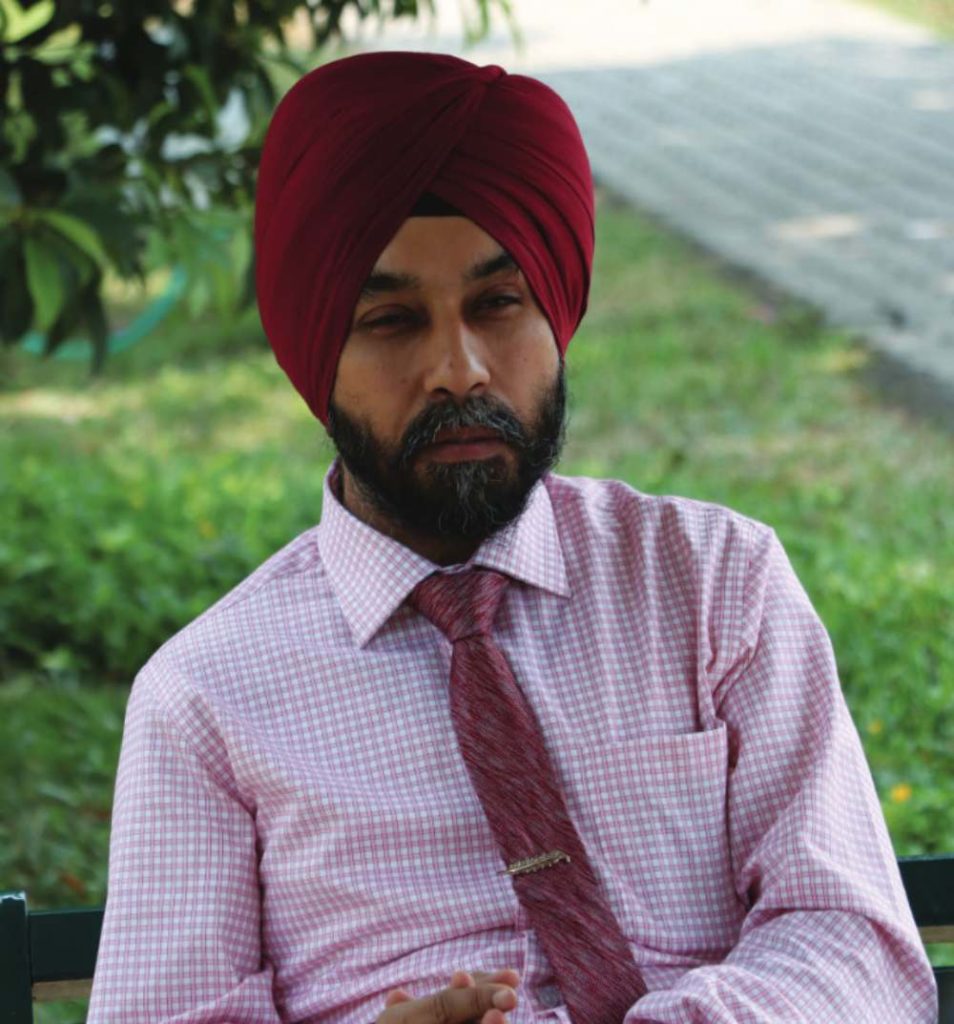
“TO ENSURE STANDARD CANCER CARE ACROSS THE COUNTRY, TWO THINGS ARE A MUST. WE NEED TRAINED DOCTORS IN ONCOLOGY IN ALL THE THREE SPECIALTIES, NAMELY MEDICAL, RADIATION AND SURGICAL ONCOLOGY, AND GOOD INFRASTRUCTURE AND TECHNOLOGY SUCH AS RADIOTHERAPY MACHINES AND IT.”
Dr. Randeep Singh
Senior Consultant and Unit Head, Medical Oncology, Artemis Hospital, Gurugram
Cancer crisis and lack of infrastructure
Recent reports on cancer in India present a dismal picture. The WHO report says 8.17 percent of total cancer deaths in the world in 2018 were accounted for by India and the number of cancer cases would increase five times by 2025. According to ICMR, there will be more than 17.3 lakh cancer cases in the country by 2020. The country may witness more than 8.8 lakh cancer deaths while only 12.5 percent of patients might get treatment in the early stages of the disease.
With cancer as the second largest killer disease, right after cardiovascular disease, the country is grappling with a lack of well-equipped cancer hospitals, trained professionals, timely diagnosis and affordable cancer care. Experts believe India is ill-prepared to tackle the growing cancer burden in the future due to the low number of dedicated cancer care centers. As per the National Institute of Cancer Prevention and Research (NICPR), by March 2018, there were around 2.25 million people struggling with cancer in India. National Cancer Grid data reports only 62 dedicated regional or national cancer care centers in the country, which is dreadfully inadequate to meet the exponentially increasing demand for quality cancer care.
National Cancer Grid
- Started in 2012 by the Tata Memorial Centre, Mumbai
- Now, a network of 172 cancer centers, research institutes, patient groups, and charitable institutions
- First peer review held at Cachar Cancer Centre, Silchar, in November 2014
- Regularly organizes CReDo workshops for training cancer researchers
- Collaborated with Tata Trusts and TMC in 2017 to create Navya expert opinion service, which helps patients in remote India as well as 20 developing nations
Even the upcoming projects will not be enough. “The government has realized that the cancer burden is increasing and hospitals treating cancer are meager in number. That is why the investments in cancer hospitals are going on. Still, this is very little when we look at the unabatedly increasing number of patients,” says Prof. Ravi Mehrotra, director, ICMRNICPR. “Diagnosis facilities are very important, which are also not there. We need much more infrastructure to handle this patient load.” Says Dr. Singh: “The government needs to enter into a public-private partnership and develop the infrastructure. Also, whenever demand and supply ratio is unmet, you have to treat the professional also with better incentives so that good oncologists stay with the government sector.”
India’s largest dedicated cancer center
A recent initiative to help overcome the problem of deficient tertiary cancer care in the country is the National Cancer Institute (NCI), which comes under the All India Institute of Medical Sciences, in Jhajjar, Haryana. Supposedly the biggest cancer hospital and research facility in India, it will have 710 beds just for cancer patients. Like AIIMS in Delhi, most of the treatments and procedures will be available for free or at a very nominal fee. It is the most advanced and cheapest cancer care center in the public sector, being constructed at the cost of INR 2,035 crore. The Out Patient Department (OPD) is already operational and it will be fully functional by December 2020. The services will start in three phases.
The OPD, intensive care unit, 25 operation theatres and 250 beds begin operations in Phase 1, 500 beds by December 2019 in Phase 2 and 710 beds by 2020, making the institute fully operational. It will be equipped with 5 linear accelerators, 3 brachytherapy units, 2 MRI scanners, 4 PET scanners, and 2 CT scanners, amongst many other state-of-the-art technologies. The first-ever Robotic Core Clinical Laboratory in the country has been set up at NCI; this is also the largest in Asia, and can carry out more than 60,000 tests each day and provide reports in two hours.“This is an institute for the people and by the people. We are going to be looking at India-specific trends in cancers, causes and also working on the drugs and therapies,” says Dr. Ruth. He wishes to make affordable and good quality cancer care available to the underprivileged. “The game-changer will be bridging the treatment gap between the rich and the poor and providing high-end diagnostics using the latest medical technology, molecular medicine, and proton therapy to everyone,” he adds.
National Cancer Institute
- null
- India’s biggest cancer hospital and research facility, being built at a cost of INR 2,035 crore
- Falls under All India Institute of Medical Sciences, Delhi
- Will be the most advanced and cheapest cancer care centre in India
- Phase 1: OPD, intensive care unit, 25 operation theatres and 250 beds to begin operations
- Phase 2: 500 beds by December 2019
- Phase 3: 710 beds by 2020, plus 5 linear accelerators, 3 brachy-therapy units, 2 MRI scanners, 4 PET scanners and 2 CT scanners, and India’s first-ever Robotic Core Clinical Laboratory; this is also the largest in Asia, and can carry out more than 60,000 tests each day and provide reports in two hours
NCI is a comprehensive cancer care institute that provides preventive, curative and palliative care. It recognizes the importance of palliative and end-of-life care. It counsels patients and their families to help them cope with the disease, guiding them on care and safe use of opioids for pain management. Towards the end of the year, training, teaching, and research are also expected to gain momentum as the institute prepares for full functionality. “The best cancer doctors in India will be coming out of NCI, there is no doubt about that,” asserts Dr. Rath. While the rapidly growing cancer cases in the country and lack of adequate cancer care services worry the experts as well as government bodies, relevant measures are already underway towards dealing with these issues.
The NCG, along with TMC, is at the vanguard of improving cancer management in India while the biggest cancer hospital in the country, NCI, under AIIMS, promises to bring inexpensive and high-quality cancer care services to everyone. Although these efforts are commendable and encouraging, we are still a long way from the ultimate goal of achieving better cancer outcomes, improved quality of life for cancer patients and good palliative care. We have taken the right steps in that direction, however, and there are still miles to go.
Also read about
HOW TO IMPROVE AND SUSTAIN YOUR MENTAL HEALTH
















